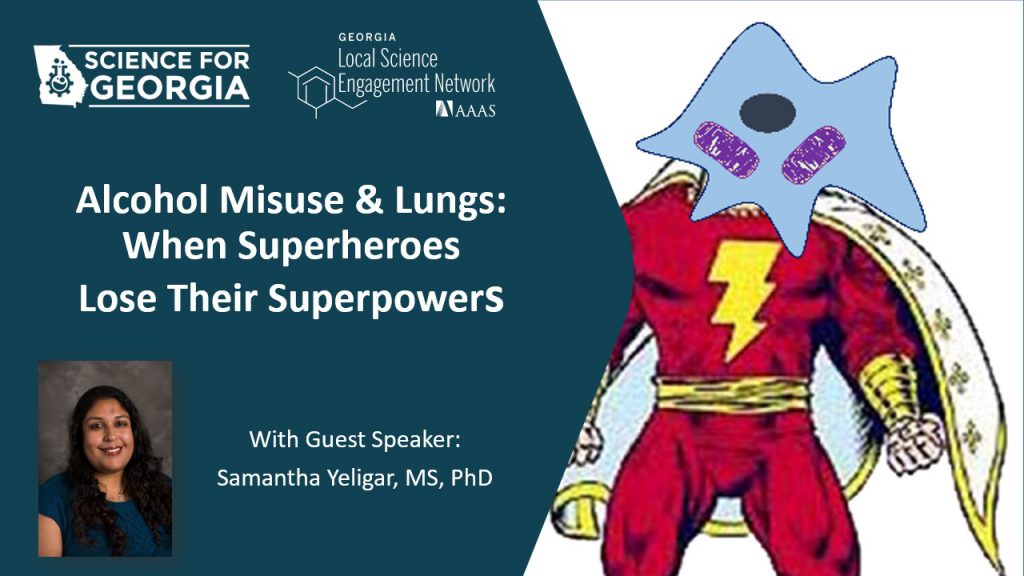Oct 9th, 2021
In person
Rose Circle Park, Atlanta, Ga 30310
“How much alcohol is ‘safe’ to drink?” “Alcohol affects the lungs??? How?” In this Science Tales and Trails, we’ll discover the answers to these questions and more!
Alcohol misuse affects over 15 million people in the United States and increases the risk of developing lung infections, like pneumonia, in these people by up to 4 times! In the lungs, alveolar macrophages are one of the cell types responsible for engulfing and killing bacteria or viruses that cause infections. However, frequent, excessive alcohol use impairs the ability of alveolar macrophages to function properly. We’ll discuss how mitochondria, the “powerhouses” of the cell, play important roles in these alveolar macrophage functions and how different treatments being studied could lower the risk of lung infections in people who misuse alcohol.

Samantha Yeligar is a scientist, teacher, and mentor. Samantha completed her MS and PhD in Biochemistry and Molecular Biology at the University of Southern California where she studied how alcohol misuse leads to alcoholic liver disease. Samantha joined Emory University as a postdoctoral fellow and has risen through the ranks to Associate Professor of Medicine where she now leads a robust research program. Her lab studies how excessive alcohol use negatively affects the lungs and increases the risk of developing lung infections. Samantha’s lab also investigates potential treatments for alcohol-induced lung injury that could benefit human health. Beyond research, Samantha is passionate about mentoring young scientists and effectively communicating her science to researchers and the public alike. The central tenet of Samantha’s teaching philosophy is based on igniting and maintaining the spark of scientific curiosity, across all backgrounds and throughout life.
